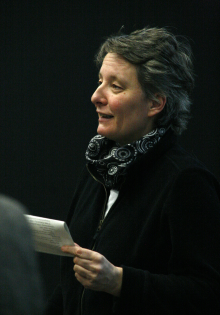The use of weapons that act autonomously and without human assistance have long since left the realm of science-fiction and entered reality. According to UN reports they were already being used in Libya in March 2020. The rapid development of autonomous weapon systems (AWS) is a controversial topic in international security. Stakeholders from politics, civil society, the military but also the humanities and social sciences are debating whether and how autonomous machines threaten the loss of human control and responsibility and its societal consequences. A research association led by Paderborn University intends to critically examine the implications of autonomous weapon systems and the concept of autonomy from an interdisciplinary perspective. The project will run for four years starting in April, receiving around 2,250,000 euros in funding from the German Federal Ministry of Education and Research (BMBF) under the title, “Meaningful Human Control. Autonomous Weapon Systems Between Regulation and Reflective Practice” (MEHUCO). Researchers from the Universities of Bonn, Hamburg and Hannover as well as from Ostfalia University of Applied Sciences in Wolfenbüttel will be joining those from Paderborn University in the project.
The question of agency and the sociopolitical consequences of AWS
Media sociologist Professor Jutta Weber of Paderborn University’s Department of Media Studies is leading the interdisciplinary research alliance. She explains, “We’re aiming to develop a comprehensive understanding of the socio-cultural dimension of autonomous weapon systems while combining the diverse skills of science and technology studies and peace studies. That means, among other things, discussing the technical and legal bases and their potential societal consequences and to translate our findings for a broad audience. We are developing a concept that brings into focus the socio-material agency of AWS and its associated consequences, based on a complex understanding of the technology. We are reaching beyond a reductive and dualistic debate that always seeks to ascribe legal capacity either to humans or to machines. For one thing, software is also based on normative principles and categorical decisions, proposing implicit ‘grammars of action’. And for another, application contexts, complex networked infrastructures and cultural conceptions play a significant role in decision-making surrounding the use of machines and their effects. So it’s already clear that there are no simple answers when it comes to ascribing responsibility for actions within complex human-machine assemblages.”
Beyond the classical publishing , the team’s findings will also be translated into broader public discourses, for example, in the form of a film documentary and in “walkshops” with security politicians. To strengthen the project’s non-western perspective, researchers from the global south will be involved and invited to debate the alliance’s work.
Differing perceptions of autonomous weapon systems
“The controversy on the relationship of humans and machines is characterised by concepts such as autonomy, control and responsibility which have different epistemological and normative bases. In spite of a diversity of perspectives, most stakeholders share the assumption that developing and deploying AWS is leading to considerable consequences for warfare, conflict avoidance and arms control. Most experts are calling for a ban, a line also followed by the new German federal government. However, it is certainly worth taking a closer look at how autonomous weapon systems are defined by our new government,” Weber adds.
Untapped prospects
The interdisciplinary and national network of expertise intends to critically analyse hitherto unconnected problem descriptions and differing approaches to autonomous weapon systems, putting them into historical and cultural context. Researchers from the areas of science & technology studies (STS), robotics, legal studies, sociology, media studies and computer science are involved in the project. Paderborn University’s subproject, “Swarm technologies. Control and autonomy in complex weapon systems,” will critically examine concepts and deployment scenarios for autonomous drone swarms with regard to the human-machine relationship.
According to Weber, it will also be central to bring the problems adressed to the attention of stakeholders from politics and civil society and to point out the urgent need for action. “Alongside scientific publications, we plan to communicate our results specifically to different audiences. We are also working with organisations such as the European Center for Constitutional and Human Rights in Berlin. And we aim to cooperate with institutions such as the German Federal Agency for Civic Education to hold public events.”



